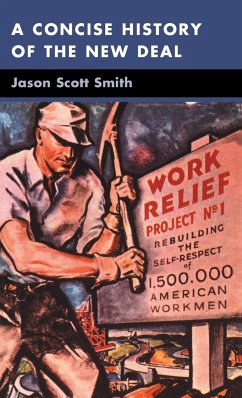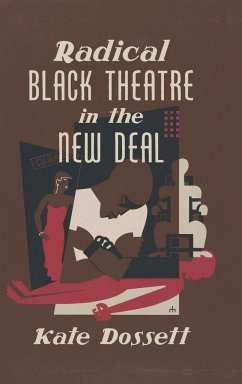
South Carolina and the New Deal
Versandkostenfrei!
Versandfertig in über 4 Wochen
54,99 €
inkl. MwSt.

PAYBACK Punkte
27 °P sammeln!
JACK IRBY HAYES, JR., revisits the South Carolina of the 1930s to determine the impact of federal programs on the state's economy, politics, culture, and citizenry. He traces the waxing and waning of support for programs such as Works Progress Administration (WPA), Civilian Conservation Corps (CCC), and the Federal Emergency Relief Administration (FERA) and concludes that the modernization of South Carolina would have been delayed without their intervention. Suggesting that the New Deal hastened the end of one-party political domination, Hayes proposes that it also initiated a new era of moder...
JACK IRBY HAYES, JR., revisits the South Carolina of the 1930s to determine the impact of federal programs on the state's economy, politics, culture, and citizenry. He traces the waxing and waning of support for programs such as Works Progress Administration (WPA), Civilian Conservation Corps (CCC), and the Federal Emergency Relief Administration (FERA) and concludes that the modernization of South Carolina would have been delayed without their intervention. Suggesting that the New Deal hastened the end of one-party political domination, Hayes proposes that it also initiated a new era of modernized agriculture and banking practices, rural electrical service, labor restrictions, relief programs, and cultural resurgence. Hayes finds that Franklin Delano Roosevelt's initiatives enjoyed widespread support among South Carolinians. He documents the welcoming of agricultural and erosion controls, welfare relief, child labor laws, minimum wage requirements, public construction, state parks, and massive hydroelectric projects. He also credits the New Deal with sparking an intellectual reawakening and a restoration of faith in capitalism, democracy, and progress. But Hayes demonstrates that by 1936 South Carolinians had begun to withdraw their approval because the New Deal veered leftward, threatened established racial practices, and upset the South's commanding influence in the Democratice Party. He concludes that the inability or unwillingness of New Deal architects to redistribute wealth, control unemployment, and significantly increase consumer purchasing power prevented the return of agricultural and industrial prosperity.












